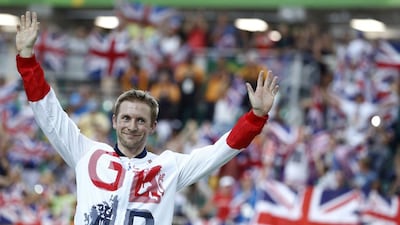There is nothing like success on the sports field to cheer up a nation, and Britain's amazing run in Rio has brushed aside the Brexit gloom. A month ago, the Remainers were livid and the Leavers were embarrassed, but not any more. Instead of falling off a cliff, the UK economy is actually doing remarkably well.
Almost every day last week brought a new statistic to confound the gloomsters. British companies were not supposed to keep hiring this summer – but they have. And the employment rate reached a record 74.5 per cent during the three months to June. There are now 31.8 million people at work, 172,000 more than the previous quarter, and unemployment, at 4.9 per cent, is the lowest in 11 years.
And people were not supposed to go on spending, yet retail sales rose 5.9 per cent last month compared to a year ago. That doesn't happen in a recession, that's for sure. Surveys of household expectations have risen in the past month, when they were supposed to have collapsed (they did, briefly, last month but recovered this month).
Economic forecasts, slashed at the end of June, have also begun to revive. In the wake of the Brexit vote, the Bank of England cut its growth projection for next year from 2.3 per cent to 0.8 per cent, which was the biggest cut in its annual forecast since 1993. Yet last week, Moody's, which has changed the outlook on UK sovereign rating to negative from stable and affirmed Aa1 rating, said it is forecasting 1.2 per cent growth next year. Few other countries in Europe will do that.
The Nobel Prize-winning economist Joseph Stiglitz, much quoted by the Remainers for his staunch opposition to Brexit, has now concluded that "the UK isn't likely to be much worse off and potentially could be better off" as a result of leaving the EU.
I confess that I was among the Remainers, who were almost in despair at the end of June. But with share prices higher now than they were pre-Brexit, commodities recovering, oil back above US$50 (20 per cent up in a month) and Team GB winning as many gold medals as Germany and France combined, things look a bit different. I suspect they will look different again in the autumn, when a more realistic picture emerges, but for the moment we are doing just fine.
That more realistic picture may already be emerging in the London property scene, which for many years has been the great investment destination for every kind of money in the world – oil money, hot money, Russian oligarch money, Chinese, Indian, Malaysian and Japanese money and, after the Euro crisis in 2010, Greek, Spanish and Portuguese funk money. The result has been residential property trading at levels beyond the dreams of those who bought even a decade ago.
That seems to have come to an abrupt halt. One story doing the rounds last week has sent shivers through the property market. An intern at one of the big property investment companies, simply doing some research, called an estate agent to check the price of a home for sale at £55 million (Dh264.4m). An hour later, the agent called back to say he had spoken to his boss "and because it's you, we're prepared to take £5m off the price". The bemused intern politely declined and an hour later the estate agent called back again. "You're driving a hard bargain," he said. "But because it's you, we'll take another £2m to £3m off." So without even trying, the intern got £7m to £8m off the price in just a few hours.
Stories of that kind abound. The asking price of a property on Charles Street in Mayfair has been cut from £22.5m to £19.5m and its owner is said to have entertained offers in the mid-teens. Higher stamp duty had already severely hit the top end of the market before the Brexit vote, but there seems little doubt that the effect has been multiplied since. Capital and Counties Properties has shaved £200m, or 14 per cent, off the valuation of its Earls Court development where it is building 7,500 high-priced homes.
In currency terms, British assets are 18 per cent cheaper in American dollars, 12.8 per cent in Malaysian ringgits, and 17.9 per cent cheaper to a Hong Kong buyer than they were a year ago. Add the big discounts, ranging up to 50 per cent in some cases, and London properties are suddenly looking a lot cheaper than they did a year ago.
The only problem is there are not many buyers. Maybe now is the time?
Ivan Fallon is a former business editor of The Sunday Times.
business@thenational.ae
Follow The National's Business section on Twitter

Ivan Fallon: Britain’s medal haul at the Rio Games eclipses Brexit and house price woes
The UK economy, and British morale, should have been falling off a cliff after the Brexit vote. Instead, it is actually doing remarkably well, for now
Most popular today
